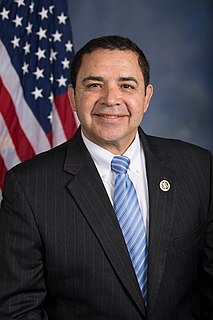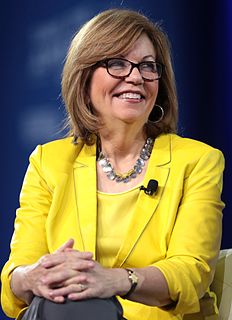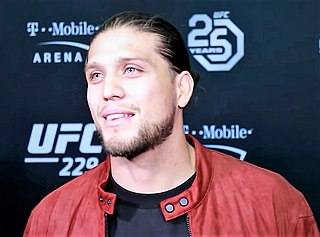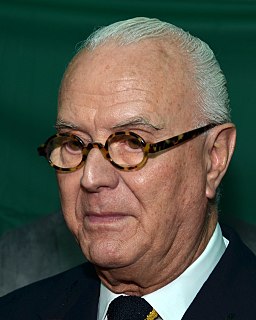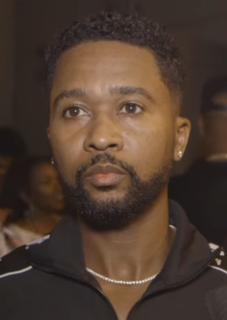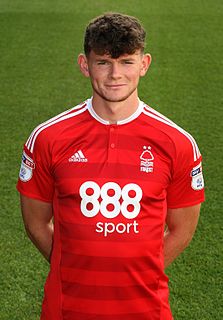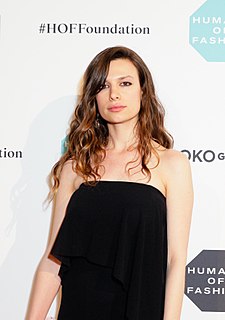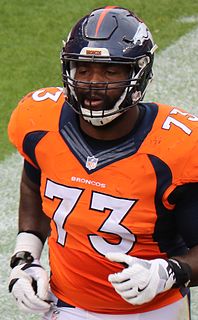A Quote by Henry Cuellar
Well, look, let me put it this way. Back in 2005, when I was a freshman, I - I was the first Democrat to support CAFTA. My labor union folks made me their number-one target. They came after me, and I'm still here.
Related Quotes
Labor union members, especially white men, are the target group for Donald Trump. He's had a lot of success in getting their support. So, it's not at all clear that labor unions will be able to do as much as they once could to get their members to actually vote for the candidate the union itself supports.
Father, One day, a woman walked into my life. I hurt her deeply with the harshest words possible. I pushed her away as much as I could. But, she still came back to me. She is so much like me; I look at myself often when I look at her. She has the physical wounds that I have. The tears that fill my brain are flowing through her heart as well. I gave her those wounds. I made her cry. I should not have met her. I should not have allowed her to come into the life of a guy like me. Father, I'm regretting it. This is the first time... that I have ever regretted anything in my life.
On my block, I had all these guys coming in and out of jail. When I was 13, I was playing outside my house, and one of those guys came across the street and started cussing me out, wanting to fight me. People knew I trained kickboxing and would put the gloves on with my friends, so that made me a target.
It was in the back of my mind, even while I was going to school, but it wasn't until I was at university studying engineering that I thought, well what do I really want to do? And I kind of came back to that and I said, well the degrees I'm trying to get are going to qualify me to apply. And so, that's what I did after I finished my, or after I was getting my doctorates. That's when I first applied to NASA.
You're always looking for somebody to love you, be accepted, and there's the insecurities that are even transmitted through rap. Everyone is trying to aim to please too much. Number one: They're trying to please whoever signed them to a contract. Number two: They're trying to appease a gigantic audience and they get this false magnification of love. I came from a thing which nowadays would be the exception to the rule. I came from a mother and father who always made me secure in my beliefs, and that's where the love came from. Which made me look at everything else as procedure.
The most tragic moment of my life was the first show I ever designed for. I had been asked to make shoes for Ossie Clark's show in the early '70s. I was so inexperienced that I didn't put the steel in the heels of the shoes, which is required to support the shoe and the wearer. So the girls came out walking very strangely in these rubber, bendy high-heeled shoes I had made. I thought 'Oh dear god! This is the end of me.' But after the show, even David Hockney and Cecil Beaton said to me 'It was so interesting that the girls were moving in such a different way.'
First I might say that when a person, when a man separates from his wife, at the out start it's a physical separation but it's not a psychological separation. He still thinks of her in, in probably warm terms. And, but after the physical separation has taken, existed for a period of time, it becomes a psychological separation as well as physical. And he can then look at her more objectively. My split or separation from the Black Muslim movement at first was only a physical separation, but my heart was still there and it was impossible for me to, for me to look at it objectively.
I had people who were around me, people that I put a lot of trust in that sort of messed me over. So after that I said, only I can look back over my life and say I was responsible for whom I hired. I was responsible for how I managed my money. So I decided I wanted to do it myself. I understood the business of football. And because I can understand the business of football, I decided it's the best decision for me to be an agent. It made the most sense and I think a lot of players are opening their eyes to it as well.
